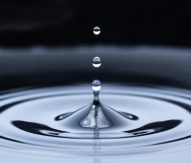
Farmers rely on solar power in water crisis
Rising populations and climate change are putting pressure on the water needed for agriculture, but a European solar powered irrigation system may reduce the amount that farmers use.
Through the Horizon 2020 programme the EU is funding research into how to transition towards a green economy and society through eco-innovation.
The idea is to strengthen innovative green technologies, processes, services and products and help them get to market.
The funding will also feed into the EU’s goal of reducing greenhouse gas emissions by 40% by 2030 and improving energy efficiency by 27% over the same period.
Agriculture accounts for almost 70% of the world’s water use, but with global populations expected to increase to nine billion by 2050, the demand for this resource will increase by an expected 55%.
For dry climates, this is a huge challenge for the farmers – and those they feed.
Dr Luis Narvarte, an associate professor at the Technical University of Madrid, Spain, who is studying the links between water and energy, said: “These countries need to keep producing food so the efficient use of water is key for the future.”
Climate change is currently causing temperatures to rise adding stress to the water available in dry regions, while irrigation activity itself is also adding to the problem as the agricultural sector burns huge amounts of fossil fuel such as diesel to pump water around farms.



